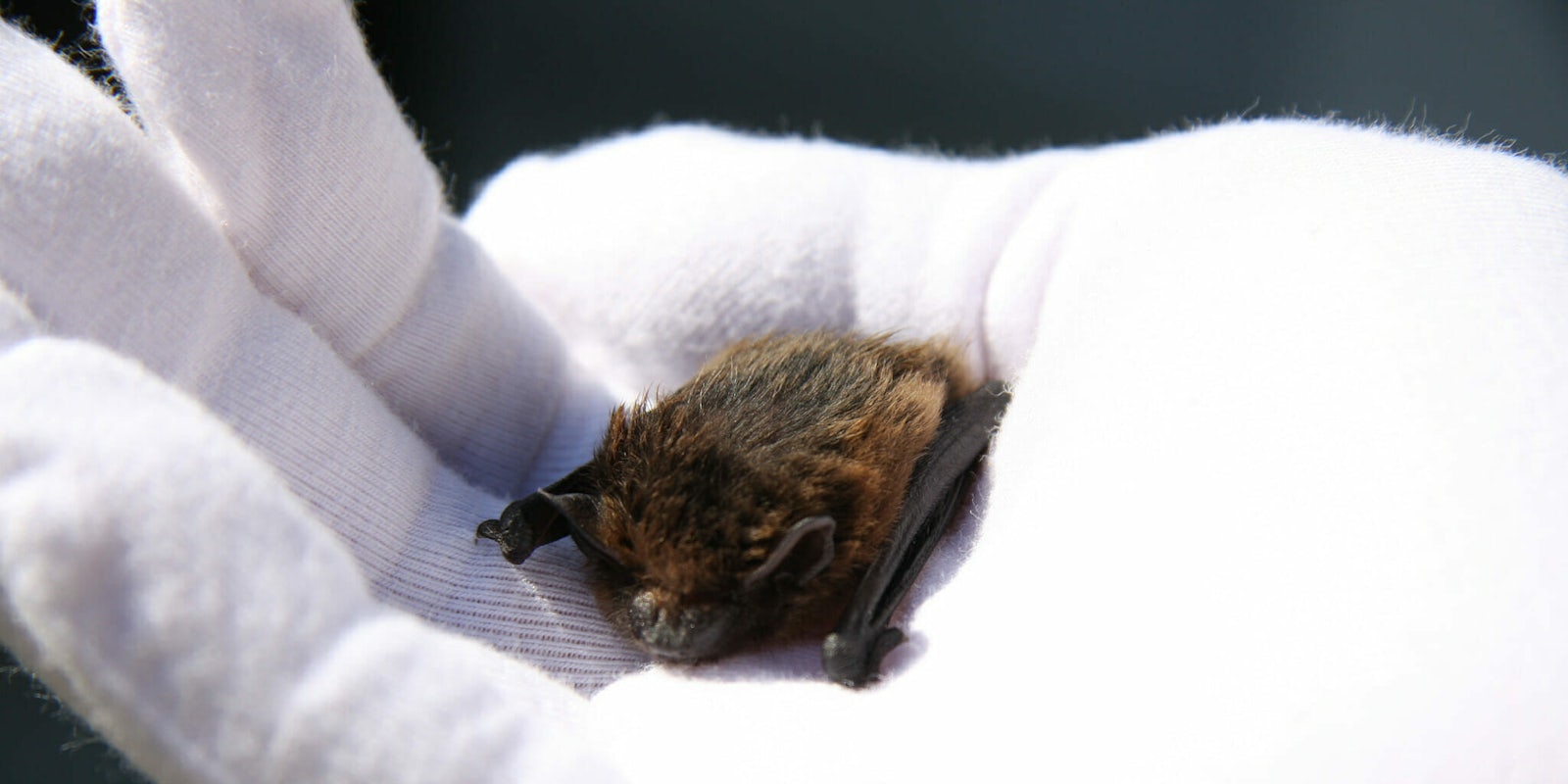All things considered, the day could have gone much worse for the tiny bat that found its way into the rare book section of the Museum of English Rural Life (MERL) in Reading, England.
Most of us, upon finding a bat in our home or place of employment, would just do our best to get rid of the flying rodent. Sure, many people will try and avoid killing a bat, but being gentle is not a top priority when compared to things like avoiding rabies and stopping your children from freaking out.
But they do things a little differently at MERL. Instead of shooing the injured bat out with a broom or trying to catch it with a towel, the little beast was identified (turns out is was a Nathusius’ pipistrelle, a fairly rare sighting in the United Kingdom) rehabilitated, named and given a library card. Not bad considering is how his day started out.
Luckily for us, MERL documented the whole ordeal on the museum’s official Twitter account.
So, we found a live bat in our rare book store.
— The Museum of English Rural Life (@TheMERL) February 24, 2019
🦇a thread 🦇
It’s where we keep the Ladybird Books Archive, medieval manuscripts, our children’s book collection, the WH Smith archive – it’s a treasure trove.
— The Museum of English Rural Life (@TheMERL) February 24, 2019
Full of lovely, lovely books.
* * . * . * . *
— The Museum of English Rural Life (@TheMERL) February 24, 2019
. * . * . .
* * . * 🦇 *. *. . *. .
* . * * . *. * .
. * . * . .
A BAT
But here he is, chilling above a fire exit he can’t even open. pic.twitter.com/t8Pvk7Vf16
— The Museum of English Rural Life (@TheMERL) February 24, 2019
The bat signal was lit.
— The Museum of English Rural Life (@TheMERL) February 24, 2019
Because the universe is weird, though, one of our volunteers and former @UniRdg_Library librarian also looks after bats in her spare time.
— The Museum of English Rural Life (@TheMERL) February 24, 2019
Here’s our bat. pic.twitter.com/0ycDRzG4XL
— The Museum of English Rural Life (@TheMERL) February 24, 2019
First things first is to check the gonads, which confirmed the bat is a boy.
— The Museum of English Rural Life (@TheMERL) February 24, 2019
Male bat genitalia look like, and we quote, ‘an albino hedgehog’.#NSFW pic.twitter.com/XnvzcUUzok
This is very cool, as the species has only recently started migrating to Britain. They’ve previously travelled from the Baltic to settle in Germany, the Netherlands, Belgium or France. pic.twitter.com/hkNcq2ujmT
— The Museum of English Rural Life (@TheMERL) February 24, 2019
Bat populations suffered catastrophic losses up until 1981, but are now heavily protected. Their main enemies are cats, habitat destruction and diminishing food supply of bugs.
— The Museum of English Rural Life (@TheMERL) February 24, 2019
Find out how can you help bats @_bct_: https://t.co/e06ERCtwMN
The tubby bugger.
— The Museum of English Rural Life (@TheMERL) February 24, 2019
(also, follow @BerksBatGroup)
— The Museum of English Rural Life (@TheMERL) February 24, 2019
And yes, the bat really did receive its own library card.
Okay…maybe bats can have library cards. pic.twitter.com/LwNzBdwXUh
— The Museum of English Rural Life (@TheMERL) February 25, 2019
Obviously, people found this story to be deeply heartwarming.
Umm that’s a really cute bat. New mascot ?? Yassss
— Girl Friday AKA: Amanda (@Girrl_Friday) February 24, 2019
My kids both just aquealed “we need to get a bat” they are 12 and 13 and NEVER agree! Miracle
— Nicky 🏳️🌈 (@witchynic) February 24, 2019
I would die for this small friend
— Biggs Darklighter Stan Account (@PixieRings) February 24, 2019
Your bat is amazing. How can I buy it treats?
— Tarby! (@UncleTarby) February 26, 2019
Sky doggos are good.
— JayShay (@MasterJayShay) February 24, 2019
You might remember MERL as the museum that tweeted about the “absolute unit” of a sheep they found in their archives back in April of 2018.
look at this absolute unit. pic.twitter.com/LzcQ4x0q38
— The Museum of English Rural Life (@TheMERL) April 9, 2018
The tweet and the thread that followed received a lot of attention at the time, and MERL even briefly changed its name to MERU, which stood for the Museum of English Rural Units.
It’s clear that MERL employs a lot of animal lovers. While the museum made a big deal over a massive sheep, they paid every bit as much an attention to a tiny bat who was barely a unit at all. That’s exactly the kind of museum, and humans, we need more of.
READ MORE:


